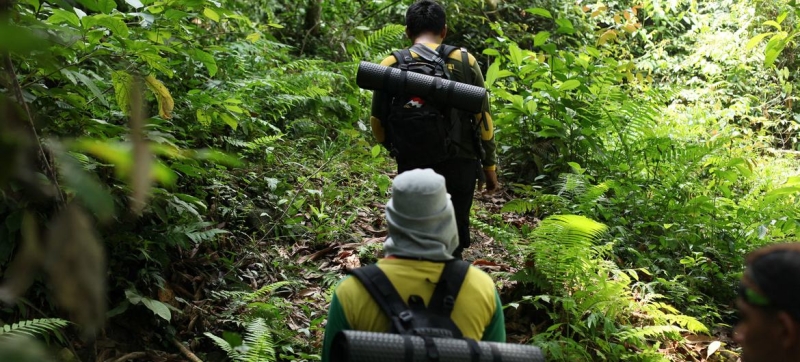© UNDP Indonesia CIWT Project Forest rangers patrol the Gunung Leuser National Park in Indonesia.
The UNFF serves as a body under the UN Economic and Social Council (ECOSOC) and aims to support the goals of the International Arrangement on Forests (IAF) and to advance other international forest-related instruments, processes, commitments, and goals.
At the forum’s opening ceremony, Juliette Biao, Director of the UNFF Secretariat, said the world currently faces numerous natural disasters, worsening climate change as well as conflict, growing poverty and unemployment, among other crises.
She said making a difference amidst these global challenges can be achieved by meeting Global Forests Goals (GFG) by 2030, however, they remain off-track.
To get back on target, Ms. Biao said countries need to “bolster political commitment and partnerships” in support of the GFGs.
“We want a world where all types of forests are sustainably managed. A world where healthy forests are recognized as powerful nature-based solutions to most of the sustainable development challenges we face today,” she said.
Assessing progress, identifying gaps
Peter Gondo, Inter-Regional Adviser of the UN’s Department of Economic and Social Affairs (DESA), said that this year’s session, running through 10 May, will include a High-Level Segment and a review of the IAF in hopes of “assessing progress and identifying gaps” in achieving the SDGs.
“The key outcomes will be a High-Level Segment declaration and an omnibus resolution, which will include the outcome of the midterm review and the Quadrennial Programme of Work of the Forum for 2025-2028,” Mr. Gondo said.
Support for Small Island Developing States
UNFF19 precedes the fourth session of the Small Island Developing States Conference (SIDS4) occurring from 27 to 30 May in Antigua and Barbuda.
Each SIDS conference focuses on assessing the ability of sustainable development in small islands.
Mr. Gondo said forests and trees are important for SIDS’ well-being.
He said that forests “…play a critical role in the availability and quantity of freshwater, in coastal protection (from waves caused by extreme weather such as hurricanes), in the conservation of biological diversity, in particular endemic species and genetic variability, and economic development through trade in wood and non-wood forest products.
The Inter-Regional Adviser said that a DESA-managed financing network – the Global Forest Financing Facilitation Network (GFFFN) – has supported many SIDS with sustainable forest management (SFM) which he said, is an “integral part of the 2030 Agenda, which recognizes forests are critical for life on land.”
“This has included support in designing national forest programmes and national forest financing strategies aligned to national sustainable development frameworks, as well as strengthening the capacity of national experts in accessing forest financing from multi-lateral and other sources,” Mr. Gondo said.
Some SIDS supported thus far include Jamaica, Fiji, Papua New Guinea, Guinea Bissau, Dominica, St Kitts and Nevis.
Triple Planetary Crisis
The UN climate secretariat, UNFCCC, has considered climate change, pollution and biodiversity loss as the triple planetary crisis facing humanity today.
Mr. Gondo said forests play a “pivotal role” in addressing this crisis since a healthy well-managed forest helps to regulate climate, clean the air and provide livelihood and food security.
He said investments in forest-based solutions can offer “a cost-effective way to generate multiple biodiversity and social benefits.”
UN News




Comments are closed.